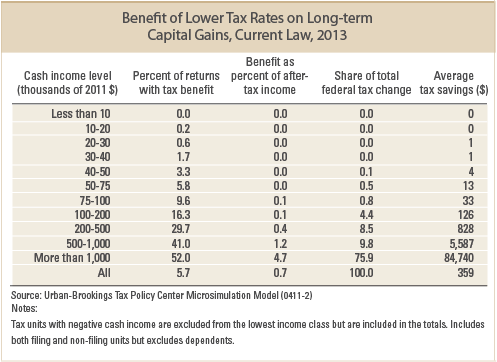Understanding The Rules Of The Federal Capital Gains Tax From
Post on: 16 Март, 2015 No Comment

A A A Print
Many people mistakenly assume that the capital gains tax does not apply to them. However, according to the IRS, almost everything that you own is a capital asset. This means that almost all of your possessions could be subject to the capital gains tax if you decide to sell them. But what is a capital asset and how do you know if you have to pay the capital gains tax?
What Is A Capital Asset?
A capital asset is almost any asset that can be sold to another party. This includes personal assets such as houses, cars, art, collectibles, jewelry and home furnishings. It also includes financial assets such as stocks, bonds, and interests in mutual, hedge or private equity funds.
What Is A Capital Gain And A Capital Loss?
If you sell a capital asset and receive more than what you paid for it, then you have earned a capital gain. This applies to both individuals and to corporations. For example, if you purchase a stock valued at $25 and you sell it at a later date for $50, then you have received a capital gain. Conversely, if you sell a capital asset for less than what you paid for it, you have taken a capital loss.
It is important to note that the recognition of a capital gain or loss cannot occur until the sale of the capital asset. If you purchase a stock or bond that rises in value while in your possession, it is not considered a capital gain unless you sell the stock or bond to lock in the profit. The same logic applies to capital losses.
Long Term Vs. Short Term
The IRS breaks down capital gains and losses by the length that the capital assets are held. If you hold the asset for longer than one year, then the sale will result in a long term capital gain or loss. An asset held for one year or less will be considered a short term capital gain or loss.
This is important because the IRS treats long term capital gains differently than short term capital gains. As a rule, short term capital gains are taxed more than long term capital gains. This is done to encourage long term investment and reduce the incentive for short term speculation.
Tax Impact
You must report all capital gains and losses to the IRS. However, the IRS allows you to net out your gains with your losses. This means that you combine your total capital losses with your total capital gains. If the resulting number is positive, then you have a net capital gain. If the number is negative, you have a net capital loss.
If you end up with a net capital gain, then you will be required to pay taxes on that gain. However, the tax rates of these net capital gains are generally lower that the normal tax rate that you would pay on regular income.
The exact tax rate that you pay on a net capital gain will depend on what type of capital asset the gain comes from, whether or not the gain is short or long term and what federal tax bracket you are in.
In 2011, a net capital gain from the sale of collectibles or the sale of qualified small business stock is taxed at a maximum rate of 28 percent. Most other capital gains are taxed at a rate of 15 percent or less. For example, a net gain from the sale of stocks and bonds will generally be taxed at 15 percent or less.
Capital Gains Tax As An Incentive To Invest
The tax on net capital gains will generally always be lower than the standard income tax rate. This is done on purpose by the IRS to encourage people to invest in stocks, bonds and other investment vehicles. As a result, financially savvy individuals and corporations attempt to shift more of their income into capital gains to reduce their overall tax burden.
To see how this incentive works, we can look at a simple example about how two people earn their annual income. If Jack earns $50,000 dollars of income from his job for wages, he will be taxed at a rate of 25 percent. However, if Jill sells some bonds and makes a net capital gain of $50,000 dollars, she will only be taxed at 15 percent because her income was from capital gains.
Keep In Mind
Capital gains taxes are generally assessed and paid in conjunction with normal income taxes. As with income taxes, capital gains taxes may be withheld in increments over a period of time.
Congress has the authority to change tax rates at any time. Therefore, it is always advisable to check with a tax adviser before engaging in the sale of capital assets.
Now that you know what the capital gains tax is, you might want to consider increasing your investment income. Speak with an investment adviser about ways to reduce your taxable income through the use of capital gains.














